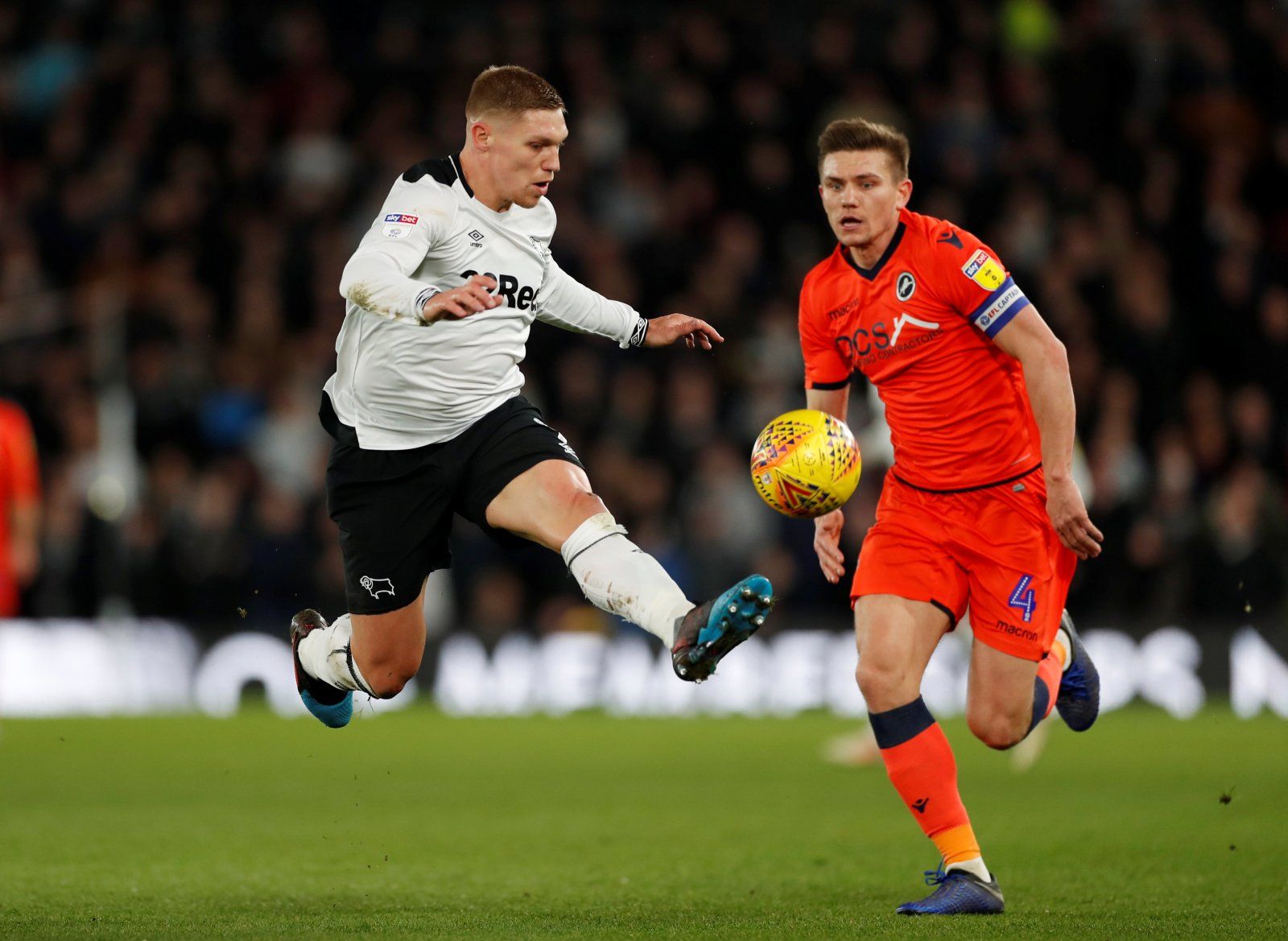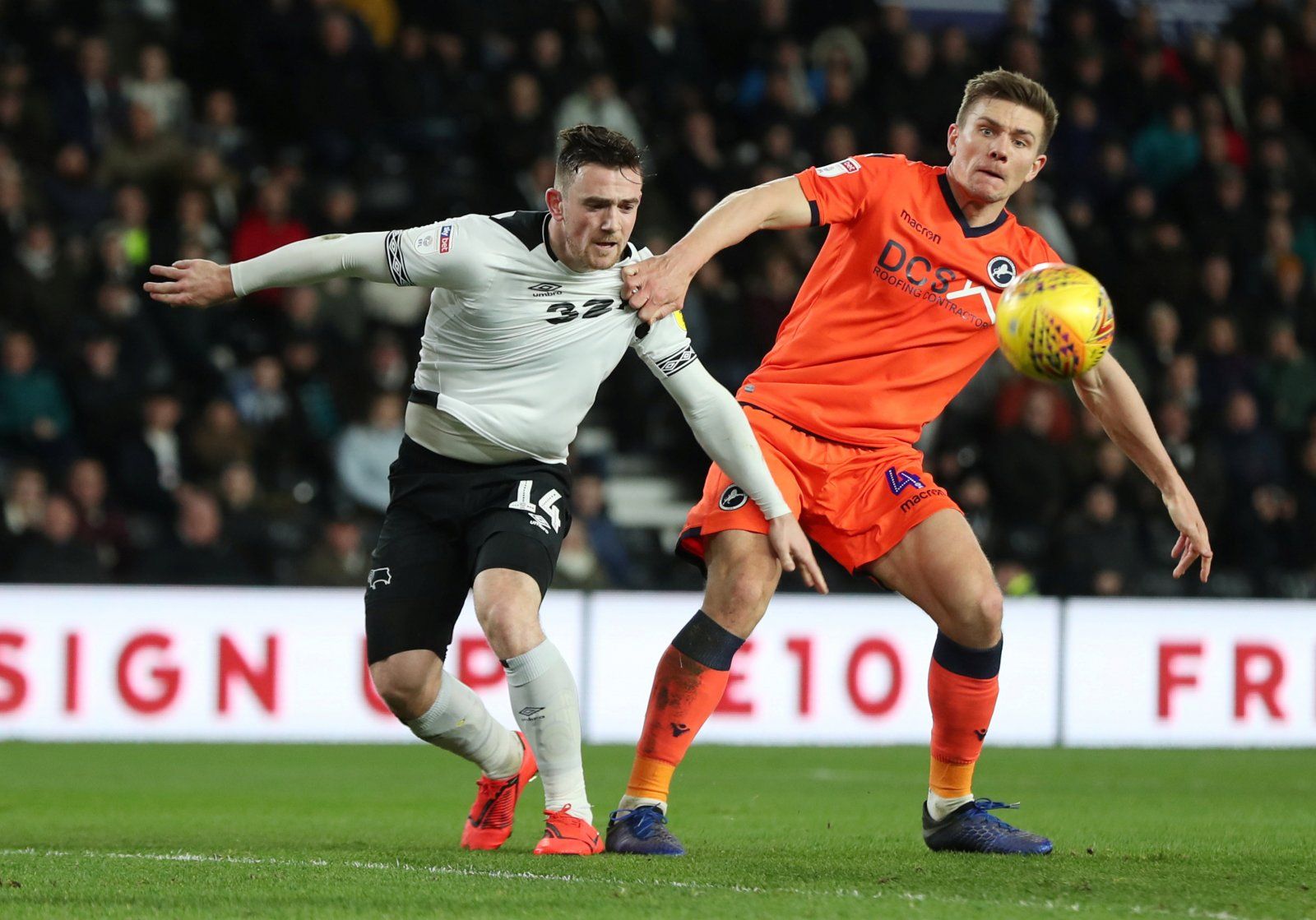[long_read]
Derby County fell to a narrow defeat at the hands of struggling Millwall on Wednesday evening to put a dent in their chase for a play-off place.
The Rams showed little creativity against a side just two places outside the relegation zone.
Frank Lampard altered his team’s shape for the visit of the Lions knowing a win could move them back into the play-off places.
But a below-par performance culminated in a 72nd minute goal scored on the counter-attack by Jed Wallace to give Neil Harris’ men all three points.
It was an abject performance by the Rams who face rivals Nottingham Forest on Monday evening, and Lampard will need to learn from last night’s mistakes and rectify them ahead of next week’s crunch game.
With that said, here are THREE things we learnt from Derby’s damaging defeat to Millwall.
[snack_break title="Too passive in possession"]
Derby, as you would have expected against Millwall, had the majority of possession.
And considering they were at home, they failed to make that advantage count.
The Rams were too often playing square balls instead of trying to get on the front foot and attack their opponents.
Too many times the ball was played sideways and backwards rarely troubling a Millwall team who are struggling at the foot of the table.
[snack_break title="Moved the ball too slowly"]
Having had the ball for most of the game, the sideward passing alone was a problem, but it came with a companion – speed.
Even when balls were played in advanced positions, it was all too slow and laboured.
Add that in with the passive football, and you get a tempo not conducive to playing to the Rams’ strengths.
It was far too negative and mediocre to put a marker on the game and cause Millwall problems.
[snack_break title="Failed to unsettle a resolute Millwall backline"]
And by playing the ball slowly and passively, they failed to break down a solid Millwall structure.
When the balls were played forward, Millwall were in their shape and found it easy to win the ball and clear their lines.
When Derby played the ball negativity, and slowly it would first not trouble the Lions’ shape but if a long ball did, then the speed at which the ball moved meant they were able to get back into position and soak up the next wave of ‘attack.’
[/long_read]




